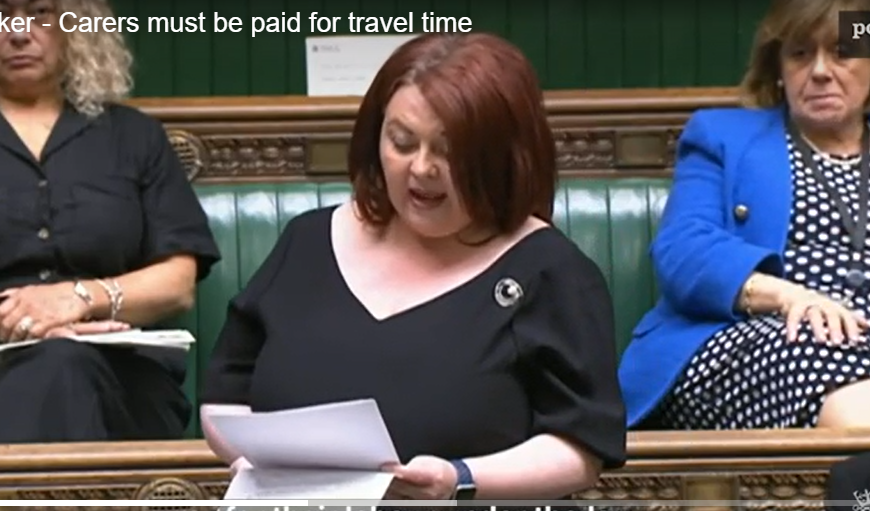Labour MP Paula Barker introduces Private Members Bill on National Minimum Wage
New Bill would ensure carers are paid national minimum wage for travelling time

On Tuesday, Shadow Minister (Levelling Up, Housing, Communities and Local Government) Paula Barker proposed a 10-minute rule bill in Parliament which, if passed, would ensure carers are paid national minimum wage for travelling time.
Introducing her bill, the MP said:
“A pre-pandemic article published in January 2019 by the organisation Homecare, found that over half of home care workers are paid less than the national minimum wage because employers are not properly paying for travel time between visits”.
You can read her speech in Hansard, here.
The Bill will have its second reading on 24 November 2023. If passed, it would strengthen enforcement of the minimum wage by ensuring that home care workers are paid for travel time between visits. This follows a survey on homecare.co.uk in 2019 which found that over half of home care workers are paid less than the national minimum wage because they are not reimbursed for travel time between visits. Over 50% of England’s local authorities do not state in their contracts that firms must pay employees for time spent travelling between visits.
As she opened for her speech, Ms Barker explained that she had served for several years as regional convenor for UNISON North West, and remains a member of the union to this day. She paid tribute to the work of her region, especially regarding the Care Workers for Change campaign which, led by Kevin Lucas, delivered pay rises for thousands of care workers.
She referred to the social care sector as the “Cinderella Service”, as the “forgotten service” which is “fantastically underpaid” and undervalued. She argued that they should not be losing workers to Tesco, Amazon and Nandos, and that the bill offers the government the opportunity to tackle the issues with retention in social care. Barker called for support from MPs “no matter their party allegiance”.
In November 2021, the Institute of Employment Rights published a booklet on minum wage reform, by Kate Ewing. Kate is a PhD student at Pompeu Fabra University in Barcelona, the focus of her work is the minimum wage. She is also a solicitor (currently non-practising) and a former Legal Officer at UNISON where she was involved in minimum wage litigation for home care workers.
In the publication, ‘A just share’: the case for minimum wage reform’, she starts by identifying three key shortcomings in the NMW framework – access to the right, challenges determining the right, and enforcing the right – before exploring and explaining the problems via three important case studies. She argues that weaknesses in the legislation must be addressed if the NMW is to serve a protective purpose and be consistent with the Supreme Court finding in Uber BV that ‘[l]aws such as the National Minimum Wage Act were manifestly enacted to protect those whom Parliament considers to be in need of protection and not just those who are designated by their employer as qualifying for it.’
She notes that the case studies demonstrate the very real value of unions in supporting workers. But, even with union support, the fact that each case took at least four years simply to establish basic principles in terms of entitlement, demonstrates that the current system is unsustainable and unfair. Ewing concludes that steps short of the implementation of sectoral collective bargaining run the risk of being mere window dressing. Reform, of a significant nature, is urgently needed to protect low paid workers in the UK to ensure dignity and decent wages for all.
You can find out more details and download the publication here.







